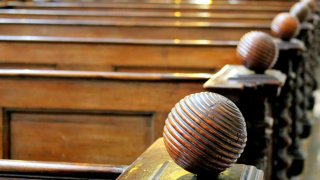
A group of black religious leaders plans to assemble at noon Monday to promote sticking with virtual worship services during the ongoing COVID-19 coronavirus pandemic, and to call for more community medical and educational services.
Black pastors and members of the San Francisco Interfaith Council are set to gather at City Hall (1 Dr. Carlton B Goodlett Place) to urge that churches in the black community, and across the region, to keep their doors closed until they can ensure the safety of their congregations from the coronavirus. The participating pastors plan to note the significant number of victims of the virus among black clergy, and members of their congregations, who closed their churches too late or have reopened them too soon.
Monday's gathering in San Francisco will come three days after President Donald Trump declared houses of worship "essential" and called for them to open in time for Memorial Day weekend. Trump said he would override governors who wanted churches to remain closed in deference to the coronavirus.
The San Francisco pastors note the significant number of victims of the virus among black clergy, and members of their congregations, who closed their churches too late or have reopened them too soon.
"Worship is not relegated to a place; Jesus said the Kingdom of God is in you," said the Rev. Dr. Amos C. Brown, president of the San Francisco NAACP and pastor of Third Baptist Church of San Francisco. "Pastors of all faiths and in all communities should take advantage of technology to keep in touch with their members, and not make snap judgments about the pandemic, but follow the science on re-opening."
The pastors have made a point of stressing they will be appropriately masked Monday and maintaining six-feet of social distancing.
The clergy leaders on Monday will also call on governments to direct additional resources to black communities, asserting that the black community has been the hardest-hit by the virus yet has not received the same care or attention as other communities. The group is calling for three important actions by government leaders - more COVID-19 testing, more medical services and more K-12 educational programs and the technology (specifically internet access) needed to use them.

